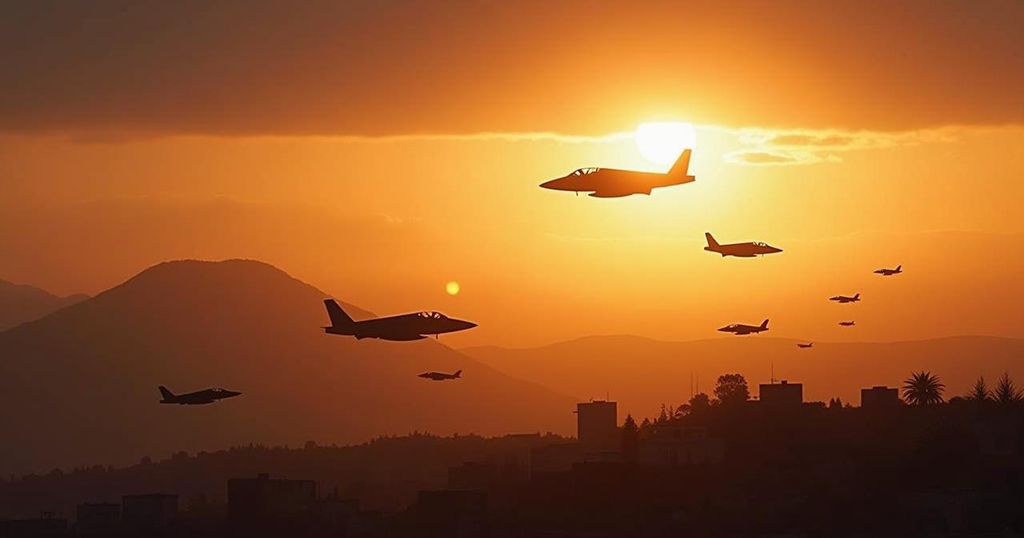Israel has intensified its military airstrikes on Lebanon, claiming numerous Hezbollah targets, following the death of Hezbollah leader Hassan Nasrallah in an airstrike. The conflict has resulted in over 1,000 fatalities and significant injuries among Lebanese civilians, leading to a humanitarian crisis with nearly one million displaced individuals. Iran has sworn revenge for Nasrallah’s death, while international responses call for de-escalation and humanitarian intervention.
The ongoing conflict in the Middle East has escalated, with Israel intensifying its military operations against Lebanon following the death of Hezbollah leader Hassan Nasrallah, who was reportedly killed in an Israeli airstrike on Beirut. As Israel claims to have targeted numerous Hezbollah positions, the number of casualties in Lebanon continues to rise significantly. Recent reports indicate that over 1,000 individuals have lost their lives and more than 6,000 have sustained injuries due to the relentless airstrikes, which have also dislocated nearly one million residents from their homes. The Iranian government has vowed to seek retribution for Nasrallah’s assassination, while U.S. President Joe Biden has characterized the act as an elusive form of justice for the victims of Hezbollah. Hezbollah has declared three days of mourning in honor of their fallen leader, although details regarding the date for his funeral remain pending. The Iranian Islamic Revolutionary Guard Corps confirmed the death of Brigadier General Abbas Nilforoushan, who was also killed during the Israeli strikes. Iran has condemned Israeli actions as heinous crimes while maintaining a position of mixed retaliation. Turkish President Recep Tayyip Erdoğan criticized Israel’s military strategies as genocidal, further highlighting the strained humanitarian conditions in Lebanon, especially concerning civilian casualties. UN Secretary-General António Guterres expressed grave concern regarding the rapid escalation of violence in Beirut, imploring all involved parties to de-escalate. The situation is exacerbated by heightened international tensions, with countries like China also expressing deep concern over the unfolding crisis. Despite these grave developments, the U.S. continues to assert its backing for Israel’s defense rights against groups it labels as terrorist organizations. The ongoing bombardments have incited dialogue within international communities, with calls for urgent discussions within the UN Security Council regarding Israel’s military engagements. As the conflict persists, the humanitarian crisis in Lebanon intensifies, requiring immediate and concerted efforts from surrounding nations and international bodies to address the escalating violence.
The Middle East conflict has a protracted history characterized by political, territorial, and religious disputes. The latest escalation follows tensions between Israel and Hezbollah, a powerful militant group in Lebanon backed by Iran. The conflict has intensified following the assassination of Hassan Nasrallah, which has drawn widespread condemnation and calls for vengeance from Iranian leaders and supportive factions. This backdrop of longstanding animosities, territorial disputes, and external geopolitical influences continue to compel the region into cycles of violence and humanitarian crises, necessitating international diplomatic interventions.
In conclusion, the situation in the Middle East remains precarious following the Israeli military operations resulting in significant civilian casualties in Lebanon, triggered by the assassination of Hezbollah leader Hassan Nasrallah. The response from Iran and international leaders underscores the complexity and volatility of the region, with humanitarian concerns mounting alongside calls for accountability. As military engagements escalate, the urgent need for diplomatic resolutions and support for displaced populations grows ever more critical.
Original Source: www.theguardian.com






